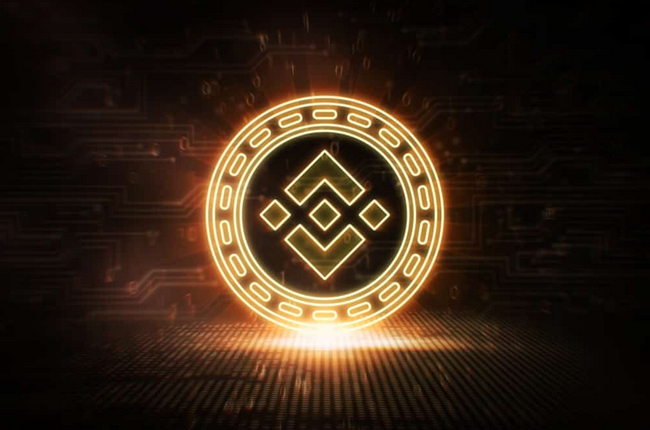-
 Bitcoin
Bitcoin $103,931.2662
-0.08% -
 Ethereum
Ethereum $2,515.2052
-1.38% -
 Tether USDt
Tether USDt $1.0000
0.02% -
 XRP
XRP $2.3918
-0.67% -
 BNB
BNB $654.1944
-1.38% -
 Solana
Solana $174.0138
-1.29% -
 USDC
USDC $0.9999
0.02% -
 Dogecoin
Dogecoin $0.2367
-1.31% -
 Cardano
Cardano $0.8164
-0.40% -
 TRON
TRON $0.2671
0.47% -
 Sui
Sui $4.0483
0.42% -
 Chainlink
Chainlink $17.1006
0.54% -
 Avalanche
Avalanche $25.0409
-1.62% -
 Stellar
Stellar $0.3117
-0.92% -
 Shiba Inu
Shiba Inu $0.0...01621
-1.31% -
 Pi
Pi $1.2479
33.76% -
 Hedera
Hedera $0.2079
-3.03% -
 Toncoin
Toncoin $3.4396
-1.82% -
 Hyperliquid
Hyperliquid $24.5292
-3.54% -
 Bitcoin Cash
Bitcoin Cash $409.0124
-2.08% -
 Polkadot
Polkadot $5.1305
-0.51% -
 UNUS SED LEO
UNUS SED LEO $8.3933
1.01% -
 Litecoin
Litecoin $100.6636
-3.99% -
 Monero
Monero $333.5430
2.54% -
 Pepe
Pepe $0.0...01434
9.70% -
 Bitget Token
Bitget Token $4.8630
-1.08% -
 Dai
Dai $0.9998
0.00% -
 Ethena USDe
Ethena USDe $1.0001
0.00% -
 Uniswap
Uniswap $6.9994
-5.01% -
 Bittensor
Bittensor $474.4253
3.93%
is bnb decentralized
Despite widespread adoption, BNB's centralized issuance, governance, and node distribution raise questions about its level of decentralization.
Nov 06, 2024 at 11:12 am

Is BNB Decentralized? Exploring the Centralization of Binance's Token
Introduction
The advent of blockchain technology has revolutionized the concept of decentralization, empowering users with greater autonomy and control over their digital assets. However, the extent to which a project is truly decentralized remains a crucial factor in assessing its potential and robustness. In the case of BNB, Binance's native token, concerns have been raised regarding its level of decentralization. This article delves into the inner workings of BNB, examining evidence and perspectives to provide a comprehensive understanding of its decentralized nature.
Examining the Evidence
To determine the level of BNB's decentralization, several key factors must be considered:
- Issuance and Distribution: The initial distribution of BNB occurred through a centralized initial coin offering (ICO), which raised funds from a select group of investors. This initial centralization raises questions about the subsequent distribution and ownership of BNB tokens.
- Governance Structure: BNB's governance is centralized within the Binance ecosystem, with the Binance team retaining significant control over the token's development and decision-making processes. The lack of a formal decentralized governance structure limits the ability of BNB holders to influence the token's direction.
- Node Distribution: BNB operates on the Binance blockchain, which is a centralized proof-of-stake (PoS) blockchain. Nodes that validate transactions on this blockchain are primarily controlled by Binance, further centralizing the network's authority.
Conflicting Perspectives
Despite the aforementioned evidence suggesting centralization, some argue that BNB's dominance as a utility token within the Binance ecosystem is a testament to its decentralized usage. BNB serves a multitude of functions, including transaction fees, staking rewards, and access to exclusive Binance services. This widespread adoption has fostered a vibrant community ofBNB utilizers who interact with the token in a decentralized manner.
Steps for Potential Decentralization
If the community desires greater decentralization for BNB, several steps could be taken:
- Establish a Decentralized Governance Model: Implementing a decentralized autonomous organization (DAO) or other governance mechanisms that empower BNB holders to participate in decision-making would reduce Binance's centralized control.
- Increase Node Participation: Encouraging a broader distribution of validator nodes across the Binance blockchain would decentralize the network's authority, ensuring that individual entities do not possess excessive influence.
- Explore Alternative Blockchain Integration: Integrating BNB with other decentralized blockchains could reduce its reliance on the Binance blockchain and expand its utilization in a more decentralized environment.
Conclusion
BNB's status as a decentralized asset remains a topic of debate. While evidence suggests a centralized structure in terms of issuance, governance, and node distribution, the token's widespread adoption as a utility within the Binance ecosystem has created a scenario of decentralized usage. Future developments, such as the implementation of decentralized governance models, could enhance BNB's decentralized nature. However, the current situation raises questions about the true extent of its decentralization.
Disclaimer:info@kdj.com
The information provided is not trading advice. kdj.com does not assume any responsibility for any investments made based on the information provided in this article. Cryptocurrencies are highly volatile and it is highly recommended that you invest with caution after thorough research!
If you believe that the content used on this website infringes your copyright, please contact us immediately (info@kdj.com) and we will delete it promptly.
- Shiba Inu (SHIB) Price Prediction: Cup & Handle Pattern Could Launch SHIB to $0.00003298
- 2025-05-12 12:20:13
- MAGACOIN FINANCE (MGA) Emerges as the New Meme Coin Heavyweight Looking to Capitalize on 2025 Bull Run
- 2025-05-12 12:20:13
- Lightchain AI (LCAI) Stands Out From the Crowd by Fusing Artificial Intelligence and Blockchain
- 2025-05-12 12:15:14
- Bitcoin Is Finally Reclaiming Its Place As A Big Alternative
- 2025-05-12 12:15:14
- Polyverse (PTC) Listing Announcement on LBank Exchange
- 2025-05-12 12:10:12
- The cruel training of elephants exploited by tourism in Thailand
- 2025-05-12 12:10:12
Related knowledge

What is Ethereum’s Slashing mechanism and how to punish malicious behavior?
Feb 20,2025 at 03:08am
Key PointsOverview of slashingDifferent types of slashing in EthereumIncentives and consequences of slashingIdentifying and reporting slashed validatorsOngoing discussions and potential improvementsEthereum's Slashing Mechanism: Punishing Malicious BehaviorEthereum's slashing mechanism is an essential tool for ensuring network security and punishing mal...

What is the verifier node of Ethereum and how to become a verifier?
Feb 19,2025 at 06:00pm
The Verifier Node of Ethereum: A Comprehensive GuideKey Points:What is a Verifier Node?How to Become a Verifier NodeResponsibilities and Rewards of a Verifier NodeMinimum Requirements for Becoming a Verifier NodePotential Difficulties in Running a Verifier Node1. What is a Verifier Node?A Verifier Node is an independent entity on the Ethereum network th...

What is Ethereum’s staking, and how to participate and earn money?
Feb 19,2025 at 04:37pm
Key Points:Understanding Ethereum's Staking MechanismSteps to Participate in StakingBenefits and Rewards of StakingSecurity and Risk ConsiderationsTechnical Requirements and Hardware OptionsPotential Challenges and Troubleshooting TipsFAQs on Ethereum StakingWhat is Ethereum's Staking?Proof-of-Stake (PoS) is a consensus mechanism used in blockchain netw...

What is Ethereum’s DAO (Decentralized Autonomous Organization) and how does it work?
Feb 20,2025 at 03:12am
Key PointsDefinition and Structure of a DAOGovernance and Decision-Making in DAOsBenefits and Use Cases of DAOsChallenges and Limitations of DAOsWhat is Ethereum's DAO (Decentralized Autonomous Organization) and How Does It Work?Definition and Structure of a DAOA Decentralized Autonomous Organization (DAO) is an innovative governance and management fram...

What is Ethereum's multi-signature wallet and how to improve security?
Feb 20,2025 at 02:18pm
Key Points:Understanding the Concept of a Multi-Signature WalletBenefits and Drawbacks of Multisig WalletsRequirements for Setting Up a Multisig WalletStep-by-Step Guide to Generating a Multisig WalletImplementing Strategies for Enhanced Security1. Understanding the Concept of a Multi-Signature WalletA multi-signature (multisig) wallet in the Ethereum e...

What is Ethereum's oracle and how to provide data for smart contracts?
Feb 21,2025 at 01:30am
Key Points:Understanding the concept of oracles in EthereumExploring different types of oraclesDetailed guide on how to provide data for smart contractsAddressing potential challenges and considerationsWhat is Ethereum's Oracle?Oracles are crucial components in the Ethereum ecosystem, enabling smart contracts to access real-world data and off-chain even...

What is Ethereum’s Slashing mechanism and how to punish malicious behavior?
Feb 20,2025 at 03:08am
Key PointsOverview of slashingDifferent types of slashing in EthereumIncentives and consequences of slashingIdentifying and reporting slashed validatorsOngoing discussions and potential improvementsEthereum's Slashing Mechanism: Punishing Malicious BehaviorEthereum's slashing mechanism is an essential tool for ensuring network security and punishing mal...

What is the verifier node of Ethereum and how to become a verifier?
Feb 19,2025 at 06:00pm
The Verifier Node of Ethereum: A Comprehensive GuideKey Points:What is a Verifier Node?How to Become a Verifier NodeResponsibilities and Rewards of a Verifier NodeMinimum Requirements for Becoming a Verifier NodePotential Difficulties in Running a Verifier Node1. What is a Verifier Node?A Verifier Node is an independent entity on the Ethereum network th...

What is Ethereum’s staking, and how to participate and earn money?
Feb 19,2025 at 04:37pm
Key Points:Understanding Ethereum's Staking MechanismSteps to Participate in StakingBenefits and Rewards of StakingSecurity and Risk ConsiderationsTechnical Requirements and Hardware OptionsPotential Challenges and Troubleshooting TipsFAQs on Ethereum StakingWhat is Ethereum's Staking?Proof-of-Stake (PoS) is a consensus mechanism used in blockchain netw...

What is Ethereum’s DAO (Decentralized Autonomous Organization) and how does it work?
Feb 20,2025 at 03:12am
Key PointsDefinition and Structure of a DAOGovernance and Decision-Making in DAOsBenefits and Use Cases of DAOsChallenges and Limitations of DAOsWhat is Ethereum's DAO (Decentralized Autonomous Organization) and How Does It Work?Definition and Structure of a DAOA Decentralized Autonomous Organization (DAO) is an innovative governance and management fram...

What is Ethereum's multi-signature wallet and how to improve security?
Feb 20,2025 at 02:18pm
Key Points:Understanding the Concept of a Multi-Signature WalletBenefits and Drawbacks of Multisig WalletsRequirements for Setting Up a Multisig WalletStep-by-Step Guide to Generating a Multisig WalletImplementing Strategies for Enhanced Security1. Understanding the Concept of a Multi-Signature WalletA multi-signature (multisig) wallet in the Ethereum e...

What is Ethereum's oracle and how to provide data for smart contracts?
Feb 21,2025 at 01:30am
Key Points:Understanding the concept of oracles in EthereumExploring different types of oraclesDetailed guide on how to provide data for smart contractsAddressing potential challenges and considerationsWhat is Ethereum's Oracle?Oracles are crucial components in the Ethereum ecosystem, enabling smart contracts to access real-world data and off-chain even...
See all articles





















































































